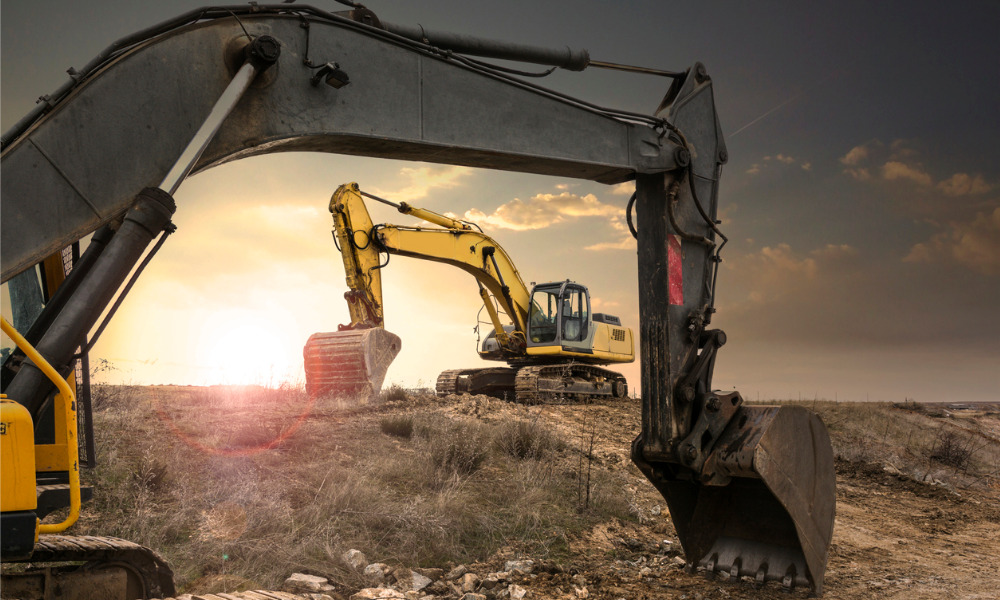Whether your business needs new equipment, or if your existing ones need replacing, you can explore several ways to acquire this equipment. One of them is equipment leasing.
In this article, we’ll discuss what equipment leasing is, its different types, and the benefits it offers. We’ll also go over equipment financing and outright equipment purchase to expand your options. Read on to find out if equipment leasing might be for you.
What is equipment leasing?
Equipment leasing is a contract between a lessee (the business that will use the equipment) and a lessor (a financial or lending institution). This legally binding contract will allow the lessee to use the equipment for a set period (months or years), subject to monthly payment until the end of the contract.
At the end of the contract and depending on the contract’s terms, the lessee can:
- extend the lease contract on the same equipment
- buy the equipment at a reduced price
- return the equipment and enter a new lease for new equipment
Benefits of equipment lease agreements
Equipment leasing is one of the many options to acquire new assets. It offers several benefits to businesses:
- It’s a cost-effective way to acquire expensive machinery. An equipment lease contract is ideal if your businesses need heavy equipment, which are expensive if bought first-hand
- It’s not a financial burden. Because the lease payments are spread over a period, it will not strain the finances of your business
- It helps you acquire multiple equipment. When allowed by the lease contract, you can lease different equipment, or the same type but several units, making it efficient when you’re expanding your operations
- It has better tax implications. The total monthly lease payments (principal plus the interest paid) are tax-deductible – these payments can be written off by deducting them on your tax filings
Watch this video to learn more about the other benefits of equipment leases:
If your expanding business is in Québec, you may reach out to any of the best asset equipment leasing lawyers in Québec as ranked by Lexpert.
Types of equipment leases
There are several leasing options that you can choose from, although this would depend on what your leasing financial institution would offer. If they’re flexible in their terms, this can still be negotiated with the financial institution with the help of an asset equipment leasing lawyer. You can also contact one of the top equipment leasing companies to explore your options.
Below are some of the common types of equipment lease contracts:
- capital lease
- lease line of credit
- master lease
- operating lease
- sale and leaseback
- stretch lease
How does equipment leasing differ from other transactions?
When you need business equipment, you may be wondering whether to choose equipment lease, equipment financing, or to purchase a new asset. A lot of factors come to play here, such as:
- your budget or availability of cash
- the number of equipment you need to do an upcoming project
- the income that your business can set aside to pay the equipment
As this will vary in different businesses and their projects, it’s advisable to consult with an asset equipment leasing lawyer. To guide you more on this, here’s a look at the advantages of one over the other, and what situations are perfect for any of these options:
Equipment leasing vs. equipment financing
While equipment lease and equipment financing may be similar in some respects, there are still some differences:

We’ve prepared a guide on equipment financing especially for startups. If you’re just about to get your small business off the ground, this guide might help!
Equipment leasing vs. asset purchase
Equipment leasing can also be compared to outright purchase:

Canadian laws on equipment leasing
There are many laws that concern equipment leases, whose application may differ depending on each case. This is why it’s important to always consult with a lawyer, especially when valuable assets are involved.
Here are some areas of law that cover asset leasing transactions:
Contracts laws
Equipment leases are contractual in nature. The rights and obligations of the parties are defined by a contract. As such, the principles of the laws on contracts will apply to equipment leases. These apply when:
- enforcing the contract
- the other party breaches the agreement
- figuring out one’s legal options against the other in case of breach
For instance, when disputes arise over a project, your asset equipment leasing lawyer can help you enforce the contract, applying the contract’s terms to the dispute.
Consumer protection laws
Each province or territory has its own consumer protection law, and some of its provisions may also apply to equipment lease agreements. These laws affect the lessors such as leasing companies and lending institutions. To know more about these laws, consult with an asset equipment leasing lawyer.
Consumer protection laws require that lessors disclose all relevant information on the lease contract to the lessee. This is usually done through a disclosure statement, which should contain clear information about the terms and conditions of the lease contract. Some examples of these are:
- total cost of the lease
- payment of lease (capital and interest)
- added fees and charges
- penalties for late or non-payment of lease
Take the first step toward equipment leasing
Equipment leasing offers a flexible and cost-effective way for your business to get the equipment it needs without the financial strain of purchasing outright. With payments spread over time and with various end-of-lease options, equipment leasing can help you manage cash flow and provide tax benefits. Consider consulting with a legal expert to find the best leasing option for your specific needs.
Looking for lawyers to help you with an equipment leasing contract? Check out our directory of the Lexpert-ranked best asset equipment leasing lawyers in Canada.
Related Articles:





